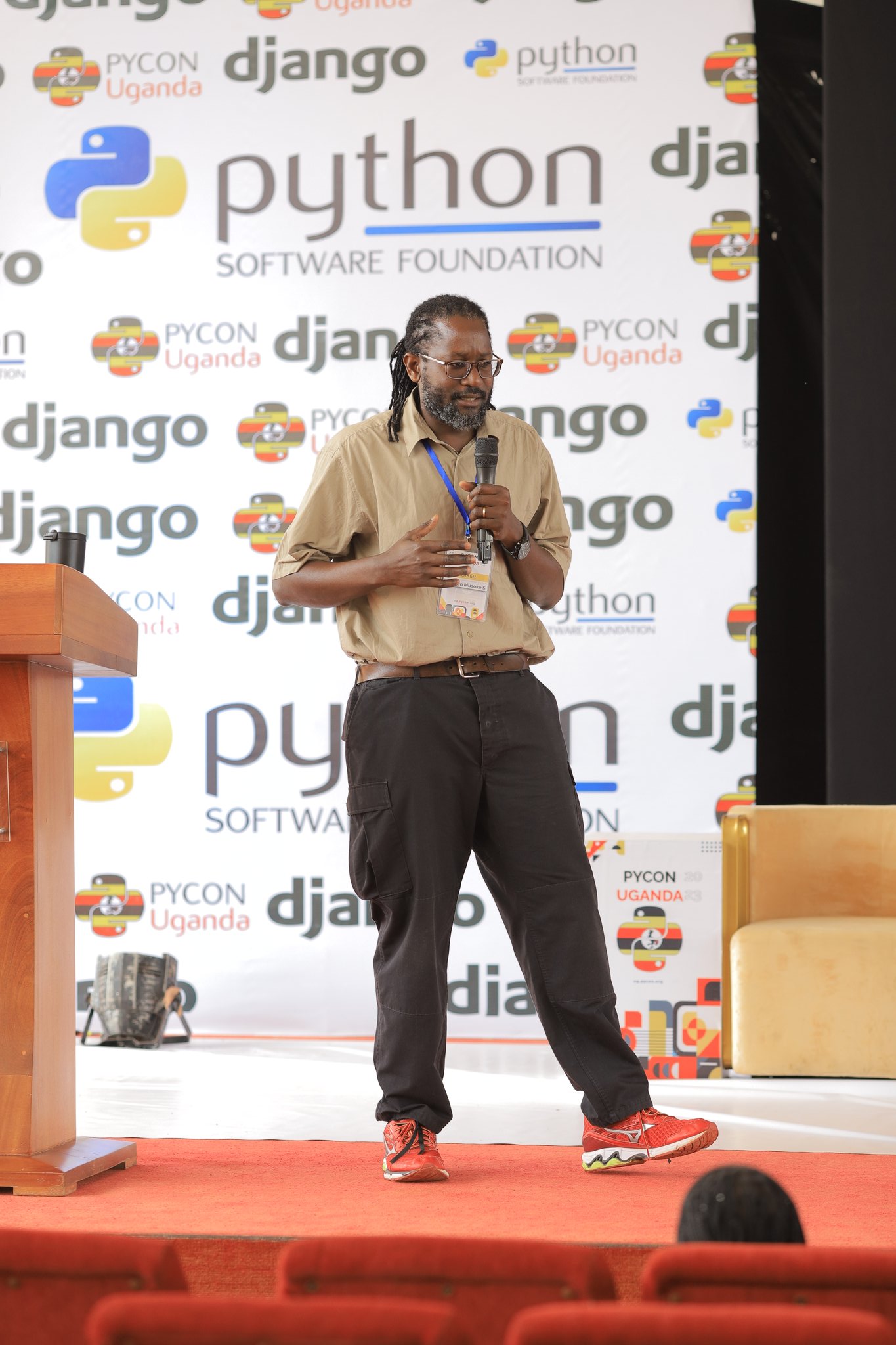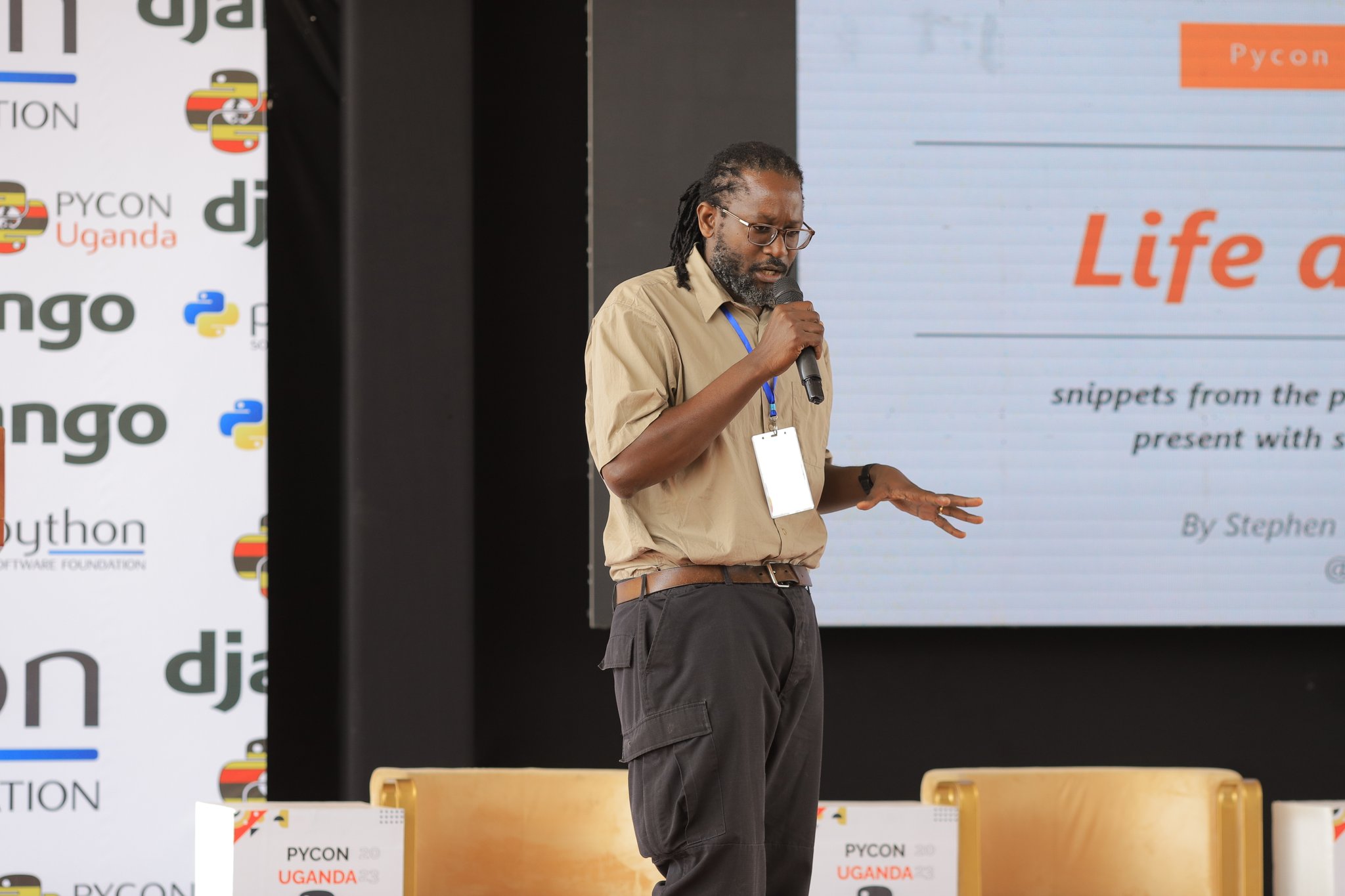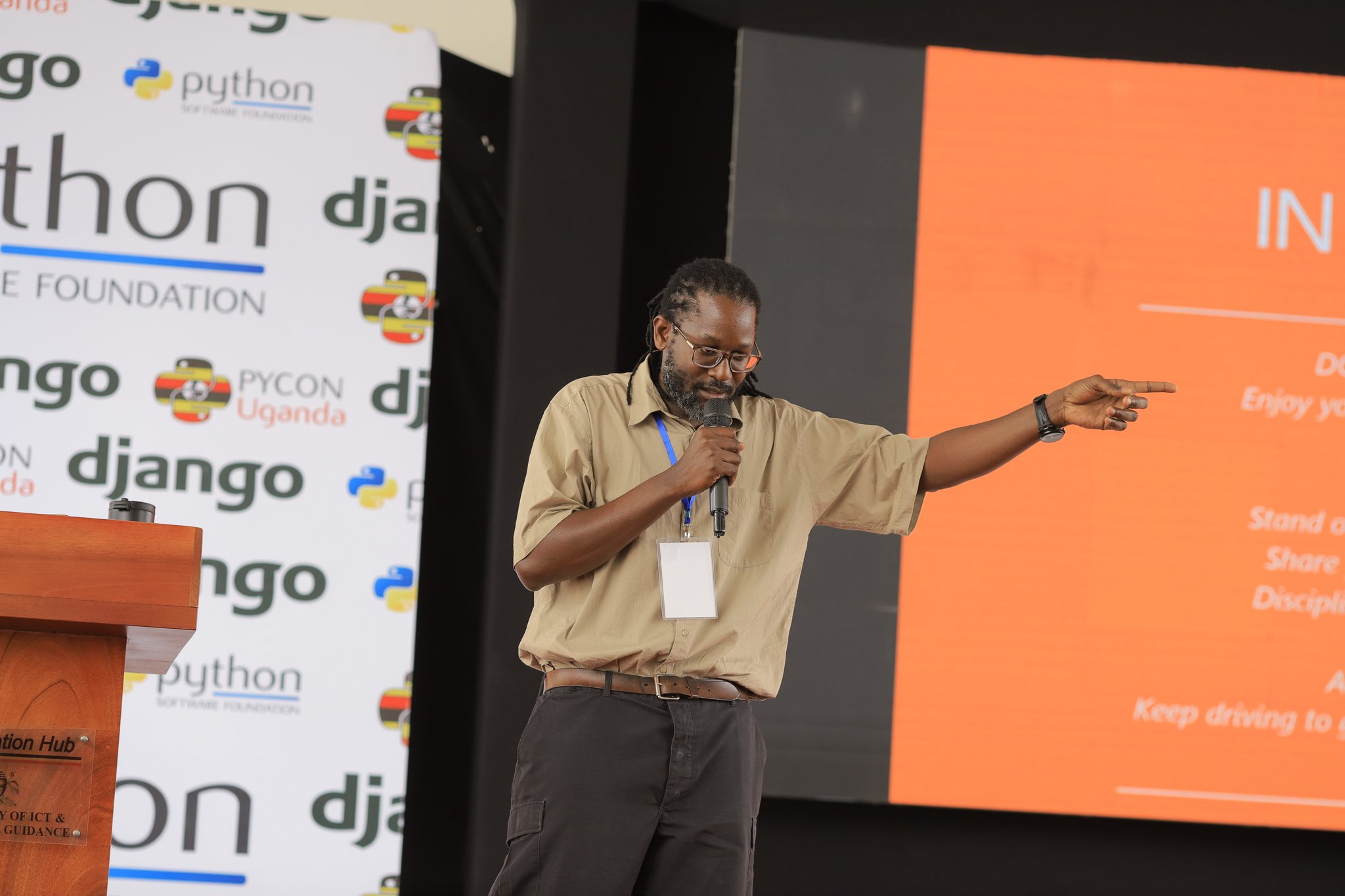This resurfaced as a discussion on challenges with the URA Portal performance, so I dug back into my archives and found the concept note for this almost a decade ago – bringing it back into the open
Archive for the ‘opensource’ Category
25 Sep
PyCon 2023 Conference – Behind the Keynote
On Friday 22 September, 2023, I was honored to deliver the Day 2 opening keynote at the first Python Language Uganda Conference which I thoroughly enjoyed and had a great time with the attendees
When I was requested to keynote about a month ago, I said yes first which is the way I operate, and recommended by Richard Branson. Once accepted, I had a difficult path forward, as I needed something new and fresh to share with this community of young developers, techies who have more technical experience with Python than I do.
As a language python is being used in a wide range of applications, from web development with the Django framework, to data wrangling – pandas, cloud computing orchestration and configuration, into machine learning and artificial intelligence.
I am on a path to solidifying my knowledge of the langauage, which I use day-to-day working with a team building out Beyonic a customer facing digital payments and collections product that enables SMEs to effortlessly collect funds from customers, send payments to vendors, and manage cash flow.
The approach I took was to focus on the end-goal: a lifestyle with options for doing the best quality and value work, while growing in a career or running successful business enterprises, raising families, living a healthy life and contributing to the physical and online communities each of us is part of
The key message was a mindset change on how to approach building this lifestyle taking lessons from successful business owners and indie hackers, which also a reminder of the journey I am on at the moment.
For those that attended:
- What were your key takeaways?
- What questions remained in your mind?
- What did I miss that you think I would have covered better?
Looking forward to hearing back from you
As is my practice I have open sourced my presentation – I am big fan and key advocate



23 Jun
Voice of the ElePHPant Podcast – PHP, Technology Journey, Opensource, Java
I am excited to have been hosted on the Voices of the Elephant podcast by Cal Evans
https://voicesoftheelephpant.com/2020/06/23/interview-with-stephen-s-musoke/
Talking about my technology journey, opensource, Java, PHP (of course) and what I am doing with it in Uganda and Africa
15 Apr
An Opinionated Approach to OpenMRS Concept Management
One of the key strengths of the OpenMRS platform is the concept dictionary, which allows for the mapping of real world health care data needs into concepts that provide the questions and answers.
The concept dictionary provides ability to map real life concepts to specializations across health care domains such as: SNOMED CT (clinical healthcare terminology), LOINC (laboratory observations), ICD-10/11 (disease classifications), RxNORM (normalized names for clinical drugs), CVX (vaccination codes) in addition to leaders in certain medical fields such as Partners In Health and AMPATH (HIV Care and treatment).
However with great power comes great responsibility, the concept dictionary coding can easily get out of hand, with duplicate concepts leading to inability to extract data for reporting and improving the efficiency clinical care that are key goals of health informatics activities.
This guide is based on my personal experience from working across multiple diverse implementations and the fact that Open Concept Lab (OCL) is not yet in widespread production usage which would alleviate most of the pains, which includes:
- Supporting the upgrade, evolution and rollout of UgandaEMR in Uganda from 350 sites in 2016 to over 1000 sites (December 2019) including implementation of 2 major revisions of national Health Management Information Systems tools
- Migration of 2 custom OpenMRS implementations in Uganda to align to and build on top of UgandaEMR
- Namibia PTracker PMTCT program
- Enhancements of the Reference Application
The key principles to this approach are as follows:
- CIEL dictionary is the official source of concepts, and first place to check for concepts
- Custom concepts must be setup in such a way that updates to CIEL or other custom modules used do not overwrite the customizations
Concept Server Setup
The setup involves using the following OpenMRS instances:
- CIEL dictionary server running the latest reference application version – contains the latest version of the CIEL dictionary and helps for data export when needed. The complete concept dictionary however is not recommended to be loaded for an implementation due to slowdowns in concept lookup, as sample concept numbers are:
- Reference Application 2.9.0 – 446 concepts
- UgandaEMR – 5,500 concepts
- CIEL dictionary – 54,000 concepts
- Custom Concepts Server – this one contains the custom concepts and CIEL concepts that exist, is the single source of truth for the project concepts. This needs to run similar modules to what the implementation is running. I would recommend the following additional steps:
- Set the autoincrement value of the concept table to 5,000,000. This ensure that the concepts created will never be overwritten by CIEL concepts, the last numeric ID as of April 2020 is 165900 due to retired concepts etc
- Set the auto increment values of the rest of the concept* tables to 10,000,000 (there are usually more values than so these tables grow)
- Create a custom mapping for your project or implementation, and use that to reference the custom and CIEL concepts that you use in your forms and reports. This adds a layer of redirection and consistency for access
- Implementation Development, Staging and Demo Servers – as needed
Moving Concepts Across Servers
There are multiple options for moving concepts from the CIEL to the Custom Concepts Server and finally to the implementation servers
| Approach | Description | Notes |
|---|---|---|
| Use of Metadata sharing and metadata deploy modules to build of metadata packages (zip files) |
|
|
| Download the concept data into CSV or DB Unit compliant XML | The concept files are then loaded into the implementation using either Initializer or Data Exchange modules |
|
| Open Concept Lab (OCL) | Allows creation of custom dictionaries and extraction of data through an online web interface | This tool is not yet production ready but would provide the automation that solves all issues |
Data Export Tools
The following additional tools can be leveraged for this purpose
- Dbunit XML data export plugin for Data Grip – https://ssmusoke.com/2017/04/17/techtip-dbunit-export-from-jetbrains-datagrip/
26 Oct
Agile Software Development for Ugandan Context 2019 Edition
Excited to share my thoughts and experiences in agile software delivery for use within Uganda at the Google Dev Fest in Kampala, on October 26, 2019

